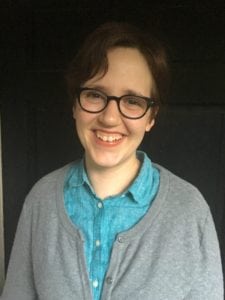I.
The Talmud (Gittin 55b) tells us that Jerusalem was destroyed on the ninth day of Av – our current Hebrew month – on account of two men: Kamtza and Bar Kamtza.
It is told that Ploni decided to throw a feast. He invited his dear friend, Kamtza to a party, but his enemy, Bar Kamtza, received the invitation.
When Bar Kamtza got to the party, he entered his enemy’s home, and found his spot at the crowded table. When Ploni saw him, he stood up from his spot at and walked to Bar Kamtza, hissing, “You are my enemy. What do you want here? Get out.”
Bar Kamtza felt his cheeks growing red and hot. He pleaded with Ploni, “Please, I’m already here. Let me stay, I’ll pay you for all I eat and drink. Just don’t embarrass me by sending me away.”
Ploni said, “No. Leave.”
Bar Kamtza said, “I’ll pay for half the feast, just please let me stay.”
“No.”
“I’ll pay for the entire feast, just don’t send me away.”
“No. You must go.”
The blood that had rushed to Bar Kamtza’s face now drained and he grew ashen. Ploni took Bar Kamtza’s hand and led him to the door.
That night, as Bar Kamtza tried to sleep, he thought of all the leaders and sages around the table. He remembered each face and each person who’d endorsed his shame with their silence. In the morning, he went to the Romans to tell them how the Jews were rebelling.
II.
One story (Sifre Bamidbar 133) elaborates on the account in Numbers 27 about Zelophehad’s daughters.
It is told that his five daughters gathered the night after their father had died. They knew that without any brothers, there was no one to inherit their family’s land. The daughters gathered to advise each other. They wanted to keep their land; they didn’t want their family name to vanish, but how? Mahla, or maybe Noa, began to speak, saying, “The compassion of God is not like the compassion of people. People have more compassion for men than for women.”
Another sister, Hogla, or maybe Milcah, said, “That’s right. But the one who spoke and created the world is not like people. The one who spoke has compassion on all people alike.”
“That’s right,” said Tirza, quoting Psalm 145, our Ashrei prayer, “as we know, the Lord is good to all, and has compassion on all creation.”
The next morning they took their case before Moses, Eleazar the Priest, the elders, and all Israel. When Moses said he would have to ask God, the sisters smiled to themselves, knowing that God’s compassion would prevail.
III.
A Blessing:
As we journey through this month of Av; to Elul, our month of reflection; and into Tishrei and the new year, may we root into compassion. May we hold ourselves and others as God holds us: with love. May we tend our Earth and the needs of our city and country with our own desire to be good to all. May we strive towards holy kindness for all creation.
(Rabbi Diane Tracht, recently ordained by the Reconstructionist Rabbinical College, is a chaplain resident at Baptist Health Louisville.)



